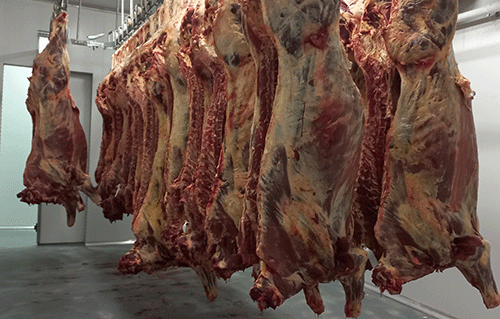RUNDU – Meatco CEO, Mwilima Mushokabanji, said the corporation needs about N$80 million to operate the soon to be opened Rundu abattoir. This, according to him, is the required startup capital to cater for the abattoir’s operational obligations including salaries, electricity, water bills as well as all other financial responsibilities for at least the first six months.
“That is one of the stumbling blocks that we are busy sorting out. Starting up the abattoir will definitely require startup capital. That is one of the bottlenecks. We are busy putting our heads together to mobilise the funds so that we are able to start up the abattoir,’’ explained Mushokabanji who was in Rundu last week to engage regional stakeholders of both Kavango regions.
Mushokabanji said he was updating stakeholders, including farmers and both regional councils to ensure information is shared so that, ultimately, they begin to prepare themselves for the time when the abattoir will officially open.
“The abattoir will operate for the first six months without realising revenue, that’s the reality about managing an abattoir. Yes, you will sell into the local market but your products will take months to arrive, for example either to Qatar or take some time to arrive in Ghana, and you still have 30 days to make sure you are able to get back your payments, so you need to make sure that you give yourself at least six months, to ensure you are able to pay your operations,” he noted.
Mushokabanji, during an interview with New Era, emphasised that key in driving competitiveness, profitability and sustainability in terms of operation of an abattoir is that the facility needs good quantity and quality cattle being processed.
“Another source of sustainable competitive advantage is really the efficiency in the abattoir that is important, and access to lucrative markets. We needed to make sure that we get this angle right in terms of sustainability of operating abattoirs in the NCA (Northern Communal Area), so we put more emphasis on market development because this is where in the past we didn’t get it right,’’ he said.
“I’m glad that we are exporting to Ghana, Angola and we are finalising penetrating the Middle East market which has more high volumes and is more competitive. Once we get that right, ultimately to a farmer what is important is to make sure that you maximise a better return for the farm,” Mushokabanji noted.
The CEO further indicated the company’s plan is to ensure farmers are happy and in business in order to supply cattle to the abattoir as they are key to sustaining the business.
“The source for sustainability for an abattoir is to make sure that farmers are into business and we need to make sure that we are able to maximise the return for the farmers. That way farmers will find relevance on why they should produce and actually supply the carcass to Meatco. That’s very, very important,’’ he said.
“So, for us these are cardinal principles that we are using in terms of managing the business,” he continued.
The Rundu abattoir is 90% ready for operations and has since last December been running trials with the processed meat sold to the local Shoprite outlet.
“We are busy slaughtering and we are giving ourselves two months just to finalise the final touches and then from there we should be able to begin operating the abattoir. We are excited and looking forward,’’ the CEO said.
– jmuyamba@nepc.com.na



